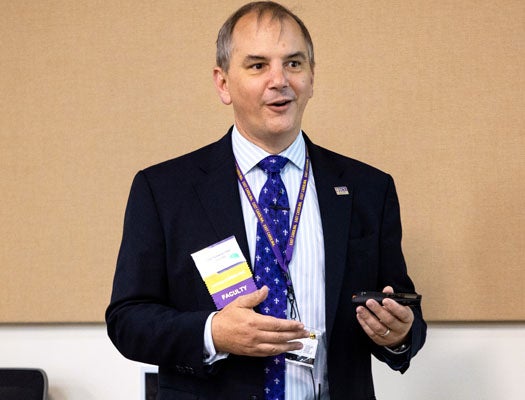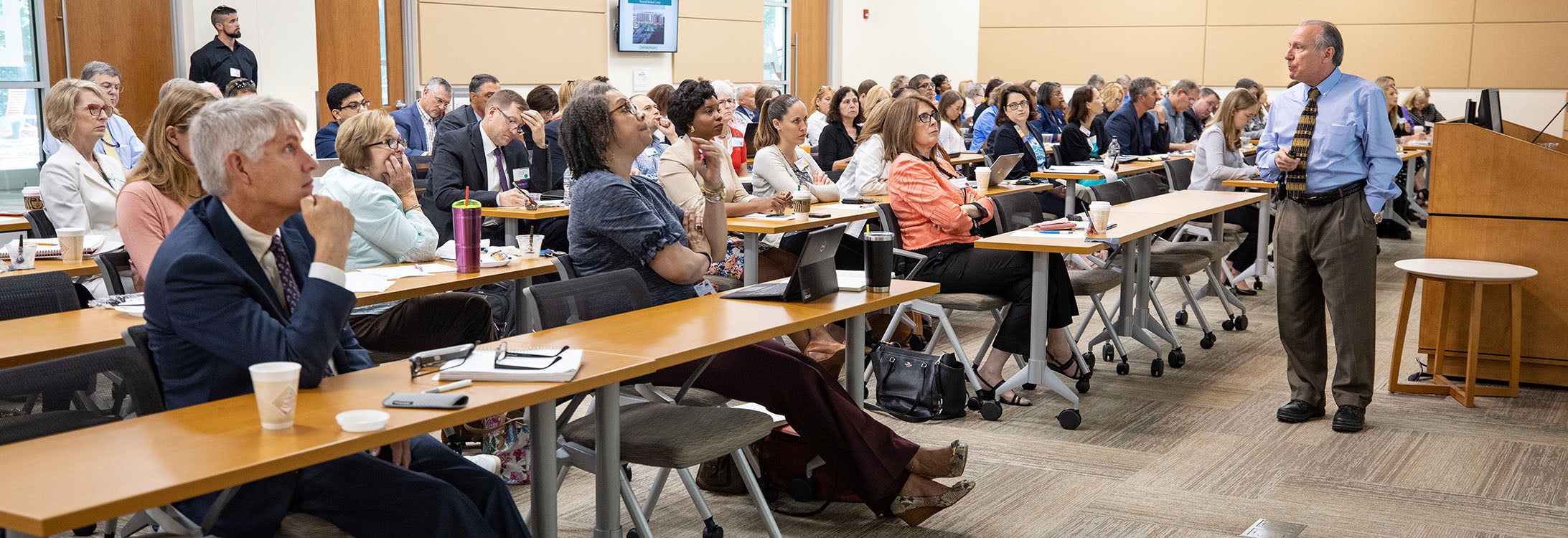REVOLUTIONIZING HEALTH CARE
Increasing quality and decreasing cost were among goals of new conference
Twenty years ago, Amazon and Netflix were just starting out; now these mainstays of everyday life can offer valuable lessons for the health care industry.
This was the focus of a new conference called Re-Designing Health Care for Eastern NC: The Next 20 Years on June 14 hosted by East Carolina University and Eastern Area Health Education Center.
“Health care is where Amazon and Netflix were in 1999. The same way they revolutionized the economy, we need to revolutionize health care,” said conference organizer Dr. Peter Schmidt, vice dean of the Brody School of Medicine at ECU.

Dr. Peter Schmidt, vice dean of the Brody School of Medicine, led the planning of the new Re-Designing Health Care conference. (Photo by Rhett Butler)
Technological advances such as telehealth and wearable devices have started new pathways in digital health, Schmidt told more than 130 health care professionals in attendance. Adopting these technologies can be difficult, but it is also an opportunity to create new industries and models of care, Schmidt said.
The United States ranks No. 1 for costliest care and No. 11 on quality and access compared to other industrialized nations, according to Dr. Chelley Alexander, chair of the Department of Family Medicine.
“This tremendous cost is unsustainable,” she said. The goal is for health care to work toward value, which is defined as high quality for low cost.
“As providers we are being judged every day on the quality of the care we provide,” Alexander said. “What would happen if we spent the majority of our money on prevention and primary care rather than sick care?”
Some states and health systems have made progress in these areas. Keynote speaker Dr. Eugene Nelson shared several examples from his institution, the Geisel School of Medicine at Dartmouth and the Dartmouth Institute for Health Policy and Clinical Practice, as well as the surrounding communities in New Hampshire.
“We can’t just treat the fish — we have to look at the fish bowl as well,” Nelson said.
Dentists need to be part of the team too, said Dr. T. Rob Tempel, associate dean for extramural clinical practices in ECU’s School of Dental Medicine. Although dentists and doctors are educated and trained differently, “oral health has an integral role in primary care,” Tempel said. He shared examples of how telehealth has expanded dental care in eastern North Carolina communities.
“Have we figured out how to charge for this? Have we figured out margins that work? Not yet. But are we developing these codes right now? Yes,” Tempel said. “It’s not the technology that’s the problem, it’s our brains. We have to come up with a new process.”

Conference participants broke into small groups to share their experiences and ideas for the future of health care. (Photo by Jackie Drake)
